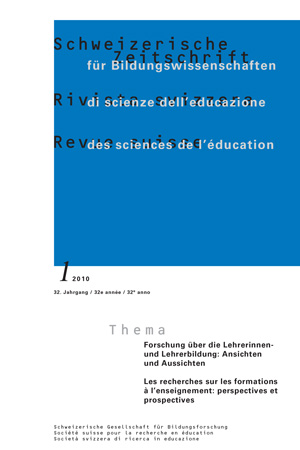The cognitive representation of types of students in future teachers – A typological analysis
DOI:
https://doi.org/10.24452/sjer.32.1.4830Keywords:
Types of students, teacher thinking, primary school, social cognitionAbstract
This study investigates whether or not future teachers with little teaching experience already have developed a cognitively represented set of types of students. Furthermore, it investigates how differentiated these types are. 82 students in educational sciences mentioned and characterized types of students that they had met during their teaching experiences. Data analysis revealed 20 commonly mentioned types of students described by 65 commonly mentioned attributes. A hierarchical agglomerative cluster analysis of the types revealed 10 clusters, which were interpreted according to their respective attributes. The cluster solution was found to remain stable over an alternative agglomeration method. This is interpreted as an indicator that future teachers do hold a differentiated and structured set of types of students. Furthermore, the types of students are compared to the ones mentioned by experienced teachers in Hofer’s study (1981). Some of the so revealed differences can be seen as indicators that stereotypes of students might be influenced by changes in educational policy discussions. The existence of these types of students is discussed regarding their development and implications for teacher education.
Downloads
Published
Issue
Section
License
Copyright (c) 2010 Thomas Hörstermann, Sabine Krolak-Schwerdt, Antoine Fischbach

This work is licensed under a Creative Commons Attribution 4.0 International License.



